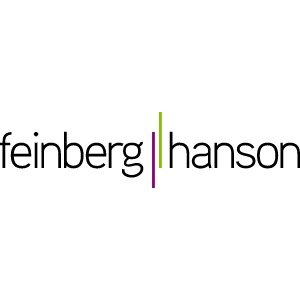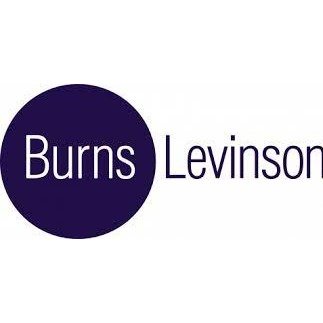Best FDA Law Lawyers in Boston
Share your needs with us, get contacted by law firms.
Free. Takes 2 min.
List of the best lawyers in Boston, United States
About FDA Law in Boston, United States
FDA Law refers to the body of federal and sometimes state regulations governing the approval, manufacture, marketing, and distribution of food, drugs, medical devices, biologics, cosmetics, and tobacco products. The United States Food and Drug Administration (FDA) is the primary federal agency responsible for enforcing these laws. In Boston, which boasts an active biotechnology and healthcare sector, FDA Law is particularly significant due to the concentration of pharmaceutical companies, medical device manufacturers, research institutions, and food businesses. Understanding FDA Law in Boston involves navigating complex federal statutes as well as Massachusetts' specific requirements for public health and compliance.
Why You May Need a Lawyer
Dealing with FDA regulations can be overwhelming for both individuals and businesses. Common situations where legal assistance is often needed include:
- Applying for FDA approvals for new drugs, devices, or food products
- Responding to FDA warning letters or inspection findings
- Challenging or complying with FDA enforcement actions such as product recalls or import detentions
- Ensuring product labeling and advertising meet FDA requirements
- Understanding the impact of FDA rules on clinical research
- Managing state and local health regulations in addition to FDA rules
- Navigating intellectual property issues related to FDA submissions
- Representing clients in litigation or administrative proceedings involving FDA matters
Whether you are launching a new dietary supplement, responding to an FDA inquiry, or conducting clinical trials, a lawyer with expertise in FDA Law can help prevent costly mistakes and ensure you remain in compliance.
Local Laws Overview
While FDA Law is primarily federal, Boston businesses must also comply with Massachusetts state and local rules that may impact food and drug-related activities. Massachusetts law, through the Department of Public Health (DPH), often sets additional consumer safety and reporting requirements for certain products and establishments. For example:
- Food and drug manufacturers and distributors in Boston require both state and local licenses in addition to federal registrations
- Clinical trials and research involving human subjects may be subject to Massachusetts-specific informed consent and privacy requirements
- State and local inspectors may conduct inspections independently of the FDA
- Boston's local health codes can place additional demands on restaurants, food trucks, and food manufacturers
It is also important to note that the Massachusetts Attorney General may enforce actions related to deceptive advertising or unsafe products, creating additional legal risk for businesses operating in Boston.
Frequently Asked Questions
What types of products are regulated by the FDA?
The FDA regulates food, dietary supplements, drugs (both prescription and over-the-counter), medical devices, vaccines, biologics, cosmetics, and tobacco products.
Do I need FDA approval to sell my product in Boston?
It depends on your product category. Certain products like new drugs and medical devices typically require FDA approval before marketing, while foods and cosmetics may only require registration and compliance with applicable regulations. Some products may also need approval or licensing from Massachusetts authorities.
How do I respond if I receive a warning letter from the FDA?
Consult an experienced FDA Law attorney immediately. A lawyer can help you understand the issues raised, prepare a written response, and work with the FDA to resolve problems while minimizing legal exposure.
What are Good Manufacturing Practices (GMPs)?
GMPs are FDA-enforced standards that manufacturers must follow to ensure products are produced consistently and meet quality standards. Boston businesses must comply with both GMPs and any Massachusetts production standards.
Are there special rules for conducting clinical trials in Boston?
Yes, clinical trials must follow FDA protocols and also comply with Massachusetts laws regarding patient consent, privacy, and institutional review boards. Additional permits may be required at local healthcare facilities.
Can the state of Massachusetts enforce food and drug laws separately from the FDA?
Yes. The Massachusetts Department of Public Health enforces its own laws and regulations, which may be stricter than federal rules in some cases. Local health authorities in Boston may also conduct inspections and require compliance.
What penalties can result from violating FDA regulations?
Penalties can include warning letters, product recalls, import restrictions, civil monetary fines, criminal prosecution, and business closure. State and local penalties may also apply.
How do I ensure my product labeling is compliant?
Both the FDA and Massachusetts require specific information on product labels. Consult an experienced lawyer to review your labels for compliance before selling products in Boston.
What should I do if the FDA inspects my business?
Cooperate with inspectors and contact a qualified FDA Law attorney as soon as possible. An attorney can guide you on compliance, responding to requests, and addressing any findings in the inspection report.
How can I challenge an unfavorable FDA decision?
You may have the right to administrative appeals, judicial review, or petition for reconsideration. An FDA Law attorney can advise you of your options and represent your interests during the appeals process.
Additional Resources
For further information and assistance, consider the following resources:
- United States Food and Drug Administration (FDA) - Primary federal body for food and drug regulation
- Massachusetts Department of Public Health (DPH) - State regulatory authority for health-related products and services
- Boston Public Health Commission - Oversees local public health regulations and licenses
- Massachusetts Biotechnology Council (MassBio) - Offers industry resources and educational events
- Greater Boston Chamber of Commerce - Provides business guidance and networking for regulatory compliance
- Legal Aid Societies and Local Law Libraries - Provide general legal information and referrals
Next Steps
If you need legal assistance in FDA Law in Boston, start by identifying your specific concerns, such as compliance, licensing, product approval, or responding to regulatory action. Gather all relevant documents and correspondence with regulatory agencies. Seek out a qualified attorney with experience in FDA regulations and local Massachusetts law. Many law firms in Boston offer initial consultations to discuss your situation and recommend a strategy. Additionally, consult the resources and governmental bodies listed above for further guidance. Acting promptly will help ensure you remain compliant and protect your business or personal interests.
Lawzana helps you find the best lawyers and law firms in Boston through a curated and pre-screened list of qualified legal professionals. Our platform offers rankings and detailed profiles of attorneys and law firms, allowing you to compare based on practice areas, including FDA Law, experience, and client feedback.
Each profile includes a description of the firm's areas of practice, client reviews, team members and partners, year of establishment, spoken languages, office locations, contact information, social media presence, and any published articles or resources. Most firms on our platform speak English and are experienced in both local and international legal matters.
Get a quote from top-rated law firms in Boston, United States — quickly, securely, and without unnecessary hassle.
Disclaimer:
The information provided on this page is for general informational purposes only and does not constitute legal advice. While we strive to ensure the accuracy and relevance of the content, legal information may change over time, and interpretations of the law can vary. You should always consult with a qualified legal professional for advice specific to your situation.
We disclaim all liability for actions taken or not taken based on the content of this page. If you believe any information is incorrect or outdated, please contact us, and we will review and update it where appropriate.

















